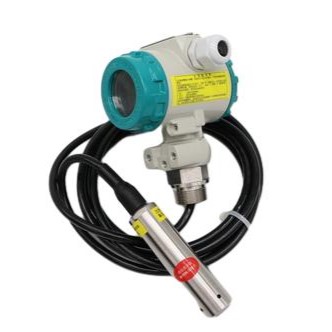What are the reasons for the liquid level jumping of the input level meter?
2023-12-30
There may be many reasons for the level jump of an input level gauge, and the following are some possible reasons:

Liquid movement due to fluctuations or agitation: If there is agitation, fluctuation, or liquid flow in the liquid, this may cause the level gauge reading to be unstable. Agitation or fluctuations may be caused by equipment operation, fluid processes, or other environmental factors.
Bubble or gas release: The presence of a bubble or gas release in the liquid may also cause the reading of the level gauge to jump. The formation of bubbles may result from chemical reactions, gas dissolution, or other factors.
Stray signal interference: Electromagnetic fields, radio frequency interference, or other electromagnetic signals may interfere with the level gauge, causing the level reading to jitter.
Faulty or damaged sensors: Faulty or damaged sensors in a level gauge can result in inaccurate level readings. This may include sensor connection problems, cable failures, or damaged sensor components.
Temperature changes: Changes in the temperature of the liquid can cause fluctuations in the reading of the level gauge. Some level gauges may be sensitive to temperature changes.
System noise: Other devices or noise sources in the system may affect the performance of the level gauge, causing the level to jump.
Adhesive substances: The sensor surface of the level meter may be affected by deposited substances (such as grease, algae, sediment, etc.), resulting in inaccurate level measurements.
Resolving these problems usually requires careful examination and diagnosis. Consider adjusting the position of the equipment, changing the process parameters, cleaning the sensor surface, repairing or replacing the faulty component, and taking other appropriate measures to resolve the level jump problem. When dealing with problems, it is best to follow the maintenance manual and operating guidelines provided by the manufacturer of the level gauge.

Liquid movement due to fluctuations or agitation: If there is agitation, fluctuation, or liquid flow in the liquid, this may cause the level gauge reading to be unstable. Agitation or fluctuations may be caused by equipment operation, fluid processes, or other environmental factors.
Bubble or gas release: The presence of a bubble or gas release in the liquid may also cause the reading of the level gauge to jump. The formation of bubbles may result from chemical reactions, gas dissolution, or other factors.
Stray signal interference: Electromagnetic fields, radio frequency interference, or other electromagnetic signals may interfere with the level gauge, causing the level reading to jitter.
Faulty or damaged sensors: Faulty or damaged sensors in a level gauge can result in inaccurate level readings. This may include sensor connection problems, cable failures, or damaged sensor components.
Temperature changes: Changes in the temperature of the liquid can cause fluctuations in the reading of the level gauge. Some level gauges may be sensitive to temperature changes.
System noise: Other devices or noise sources in the system may affect the performance of the level gauge, causing the level to jump.
Adhesive substances: The sensor surface of the level meter may be affected by deposited substances (such as grease, algae, sediment, etc.), resulting in inaccurate level measurements.
Resolving these problems usually requires careful examination and diagnosis. Consider adjusting the position of the equipment, changing the process parameters, cleaning the sensor surface, repairing or replacing the faulty component, and taking other appropriate measures to resolve the level jump problem. When dealing with problems, it is best to follow the maintenance manual and operating guidelines provided by the manufacturer of the level gauge.
Share To:
News
- Why is the thermal gas mass flowmeter not affected by pressure strength and temperature?
- What to do when a thermal gas mass flow meter fails?
- How are thermal gas mass flow meters used? What are the applications?
- Under what circumstances is the gas measurement need to be regulated compensated vortex flowmeter
- Why Is The Aister Thermal Gas Mass Flowmeter So Popular ?
- Gas turbine flowmeter manufacturers explain their main advantages in measurement
- Gas turbine flowmeter manufacturer Aister instrument field experience summary
- Aister Instrument Empowerment Conference








